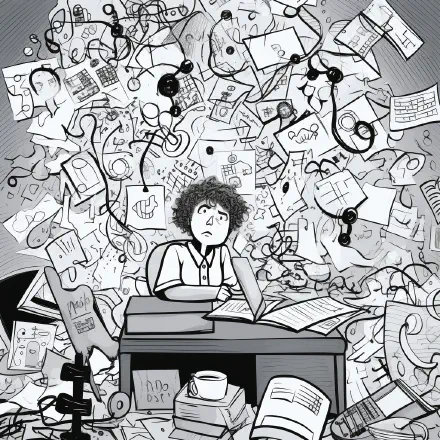
Description
Are you tired of feeling anxious and nervous during performances or presentations? Our course on overcoming performance anxiety can help you conquer these feelings and excel in any situation. Our proven techniques and expert guidance will teach you how to understand the root causes of performance anxiety, identify triggers, and implement effective strategies to control your nerves. Through breathing exercises, visualization techniques, positive self-talk, mindfulness meditation, and physical exercise, you will learn how to manage your anxiety and perform with confidence. Our practical tips for preparing effectively, focusing on the present moment, and accepting imperfection will also help you to perform at your best. Remember that seeking professional help is always an option, and practice makes progress, not perfection. Start your journey towards overcoming performance anxiety today!
Topics
- Understanding Performance Anxiety
Performance anxiety is a fear of failure or negative evaluation that affects one’s ability to perform well in a specific situation. It is a common problem experienced by athletes, artists, performers, and public speakers.
- Identify Your Triggers
Identifying triggers that cause performance anxiety can help you understand the root of the problem. Common triggers include fear of failure, perfectionism, negative self-talk, and a lack of preparation.
- Techniques to Control Performance Anxiety
There are several techniques that can be used to control performance anxiety:
- Breathing Exercises: Deep breathing techniques are effective in calming the mind and reducing the physical symptoms of anxiety.
- Visualization Techniques: Visualization of a successful performance can help reduce anxiety by building confidence and creating a positive mindset.
- Positive Self-Talk: Self-talk is a powerful tool that can help change negative thinking patterns into positive ones.
- Mindfulness Meditation: Mindfulness meditation can improve focus and reduce stress levels.
- Physical Exercise: Regular exercise can reduce anxiety and improve overall well-being.
- Practical Tips for Managing Performance Anxiety
There are practical tips that can be used to manage performance anxiety:
- Preparing Effectively: Preparing for a performance can reduce anxiety by increasing confidence and reducing uncertainty.
- Focusing on the Present Moment: Focusing on the present moment can reduce anxiety by preventing the mind from wandering and creating negative scenarios.
- Accepting Imperfection: Accepting imperfection is important for overcoming performance anxiety. It is essential to realize that perfection is not achievable and that progress is the goal.
- Seeking Professional Help
Performance anxiety can be a severe problem that needs professional help. A therapist or counselor can help develop a personalized plan to deal with anxiety.
Conclusion
Performance anxiety must not prevent performers from reaching their potential. Strategies such as deep breathing and visualization techniques, physical exercise, and positive self-talk must be used to alleviate symptoms. Furthermore, the tips outlined above can be employed to manage the symptoms of anxiety. Those experiencing severe anxiety should seek professional help immediately.
Conclusion
In conclusion, performance anxiety is a common problem that can affect anyone in any field. However, it is not something that should hold you back from achieving your goals. The techniques and tips outlined in this guide can help you manage your anxiety and excel in any situation. Remember to take care of yourself, both physically and mentally, and practice self-compassion.
It is important to identify your triggers and use the techniques provided such as breathing exercises, visualization, positive self-talk, mindfulness meditation, and physical exercise to control your anxiety. In addition, practical tips such as effective preparation, focusing on the present moment, and accepting imperfection can help you manage your anxiety and perform at your best.
If your anxiety continues to impact your performance and quality of life, it may be time to consider seeking professional help. There is no shame in seeking support from a mental health professional or therapist.
Finally, remember that practice makes progress, not perfection. Keep going and don’t let performance anxiety hold you back from achieving your goals. You have a unique set of skills and experiences that no one else has. Use them to your advantage and be proud of what you have accomplished.

